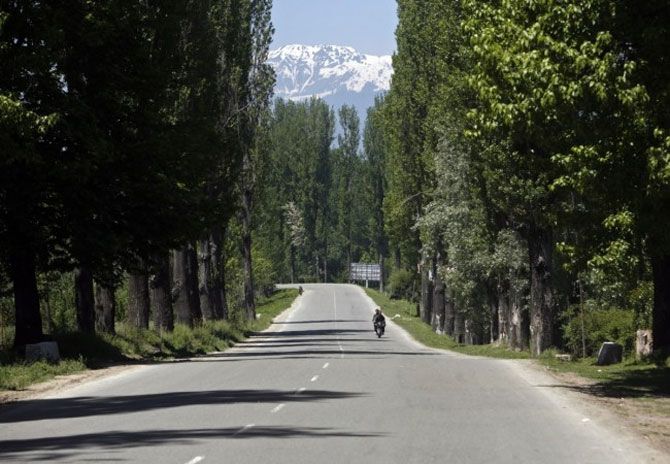With its new hybrid annuity model, the government is confident of getting more funds from India Inc.
 The country’s highways could soon see green shoots of private investments, with the government now confident of getting India Inc to fund 55 per cent of the total kilometres to be put up for bidding this year.
The country’s highways could soon see green shoots of private investments, with the government now confident of getting India Inc to fund 55 per cent of the total kilometres to be put up for bidding this year.
Last year, the government had to fund 87 per cent of the total kilometres awarded, while in 2014-15, the figure was as high as 91 per cent.
About 40 per cent of the 25,000 km to be awarded in 2016-17 would be on the hybrid annuity model, introduced by the government earlier this year.
Another 15 per cent would be on build, operate and transfer (BOT) basis. In both hybrid annuity and BOT, investments are made by private developers.
The remaining 45 per cent projects would be on EPC (engineering, procurement and construction), basis where the government pays for the construction of highways.
On an average cost of Rs 13 crore per kilometre, projects roughly worth Rs 3.25 lakh crore would be up for bidding this year.
Of the aggregate projects awarded in 2014-15, totaling a length of 7,980 km, EPC projects contributed a lion’s share of 7,246 km.
In 2015-16, the share of EPC contracts of the total 10,098 km award was 8,790 km. According to an official, this number would be around 40-45 per cent in 2016-17.
Under the hybrid annuity model that received Cabinet approval in January this year, 40 per cent of the project cost is borne by the government and the remaining by the developer.
Prior to the hybrid annuity model, the government followed two other models for road construction.
Under the public-private partnership mode executed through BOT, a road developer builds a highway, operates it for a stipulated amount of time and then transfers it back to the government. This model is implemented on an annuity or toll basis.
In the case of annuity, the government pays a fixed sum to the concessionaire over the duration of the concession period, thereby reducing the company’s risk.
Under the toll mode, the operator collects toll on its own, so the traffic risk is borne by the company.
The other model is the EPC, under which the highway developer executes the project on behalf of the government. The hybrid annuity model is a blend of the two.
The detailed project reports (DPRs) for the 25,000-km highway projects to be awarded this year is under process and is likely to be prepared in the next three to four months.
It would be followed by land acquisition. After the completion of DPRs, the central government, in cooperation with the states, would commence the land acquisition process and by March 2017 these projects would be awarded, the official told Business Standard.
Analysts are of the view that the actual impact of hybrid annuity contracts can only be ascertained after the financial closure of the projects.
However, they added, the land acquisition process to be undertaken by the government is a big positive for the companies interested in executing these contracts.
“The private sector is quite comfortable to respond to the hybrid annuity model of bidding,” said Vishwas Udgirkar, partner, Deloitte Touche Tohmatsu India LLP.
Experts also believe bigger players in the highway sector may refrain from bidding for the hybrid annuity model projects because of their highly leveraged balance sheets.
Larsen & Toubro, IL&FS Transportation Networks, GVK Power and Infrastructure, GMR Infrastructure, IVRCL, Gammon Infrastructure Projects, Hindustan Construction Co, Tata Realty and Infrastructure, and Ashok Buildcon do not have the appetite to bid for hybrid annuity projects as their balance sheets may make it difficult for them to secure loans.
Small and medium-sized companies are likely to benefit, as their exposure in the sector is lesser than the big players.
Therefore, arranging debt would be much easier for these firms.
All the 21 hybrid annuity projects awarded since January have gone to the small and mid-sized firms.
The companies that have bagged projects include APCO Infratech, Sadhbhav Infrastructure, MBL Infrastructure and Welspun Enterprises.
Photograph: Reuters







 © 2025
© 2025